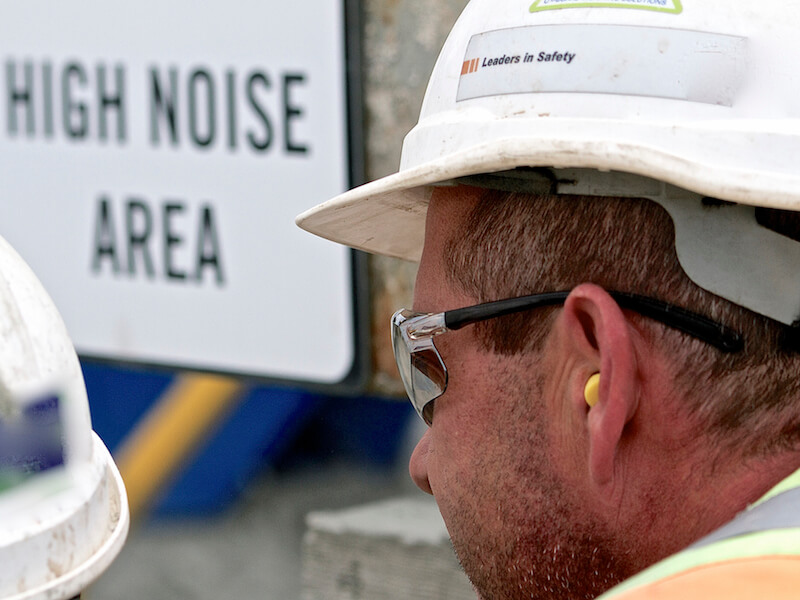
Your hearing can be harmed by a loud workplace and it can also impact your concentration. Even modest noise, when experienced for eight hours a day, can begin to undermine your hearing health. That’s why it’s really smart to begin asking questions like, “what level of hearing protection should I use”?
It isn’t common knowledge that numerous levels of hearing protection are available. But when you take a moment to consider it, it makes sense. A truck driver won’t require the same amount of protection that a jet engine mechanic will.
Levels of Hearing Damage
The fact that 85dB of sound can start to harm your ears is a basic rule of thumb. Putting sound into context with regards to its decibel level and how dangerous it is, isn’t something most of us are used to doing.
When you’re sitting in your car in city traffic, that’s around 85 decibels. No biggie, right? Wrong, it’s a big deal. At least, it’s a big deal after several hours. Because it’s not just the loudness of the noise that you need to be aware of, it’s the duration of exposure.
Typical Danger Zones
It’s time to think about hearing protection if you’re exposed to noise at 85 dB or louder for 8 hour days. But that’s not the only threshold you need to be aware of. If you’re exposed to:
- 90 dB (e.g., lawnmower): Damage will start to happen to your hearing if you’re exposed to this level of noise for 4 hours a day.
- 100 dB (e.g., power tools): Anything over one hour is considered damaging to your hearing.
- 110 dB (e.g., leaf blower): Anything above fifteen minutes is considered damaging to your hearing.
- 120 dB (e.g., rock concert): Any exposure can cause harm to your hearing.
- 140 dB (e.g., jet engine): Any exposure can cause damage and could even cause instant pain.
You’ll want the ear protection you wear to be sufficient to bring the decibel level below that 85 dB level, particularly if you are exposed to those sounds for any duration.
Find a Comfortable Fit
NRR, which is an acronym for Noise Reduction Rate, is a scale used to determine the effectiveness of hearing protection. The higher the NRR, the quieter outside sound will become (temporarily).
It’s very important that you pick hearing protection with a high enough NRR to effectively protect your hearing (and your workplace will typically make guidelines about what level will be appropriate).
But there’s another aspect to consider also: comfort. It turns out, comfort is extremely significant to keeping your ears healthy. Why? Because if your hearing protection isn’t comfortable, you’re not going to wear it.
Hearing Protection Choices
You’ve got three basic options to choose from:
- Earplugs that sit just outside of the ear canal.
- Earmuffs.
- In-ear earplugs
Each form of protection has benefits and drawbacks, but much of your hearing protection decision will come down to personal preference. For some individuals, earplugs are uncomfortable, so they’d be better served with earmuffs. For other individuals, the ability to put earplugs in and leave them in is a better alternative (of course, at the end of the workday you will need to take them out for a good cleaning).
Find a Constant Degree of Hearing Protection
Comfort is important because any lapse in your hearing protection can lead to damage. If you take your earmuffs off for ten minutes because they’re heavy and uncomfortable, your hearing can suffer over the long run. This is why hearing protection that you can leave in for the full workday is the best choice.
You’re ears will remain healthier and happier if you find the right degree of hearing protection for your circumstance.
Call Today to Set Up an Appointment
References
https://www.cdc.gov/nceh/hearing_loss/what_noises_cause_hearing_loss.html
